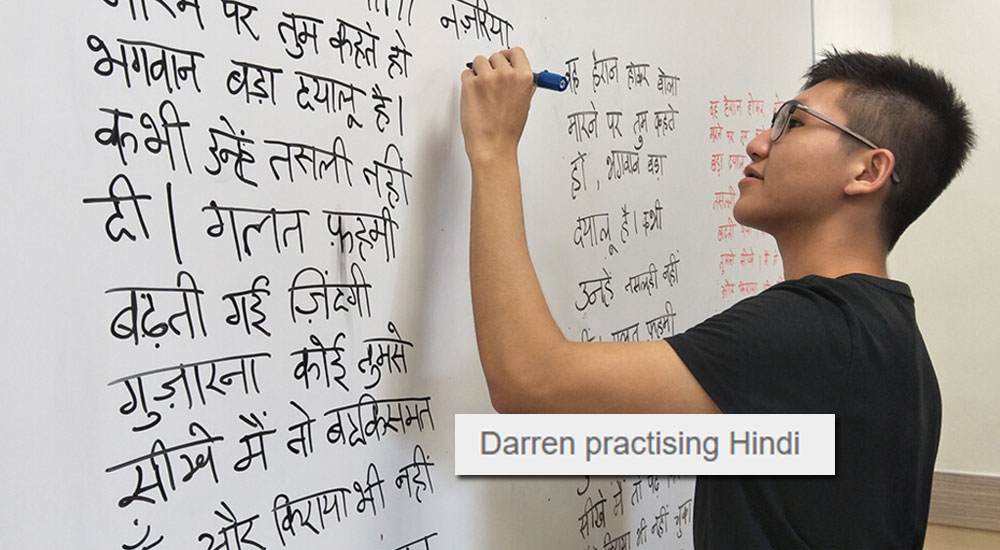While most Singaporeans are fluent in either English or their mother tongue, or neither, one National University of Singapore undergraduate understands 14 languages.
These include: Arabic, Danish, Dutch, Greek, Hebrew, Hindi, Korean, Malay, Norwegian, Russian, Swedish and Turkish, besides the usual English and Chinese and being proficient in dialects, such as Cantonese and Hokkien.
Foreign language acquisition began with foreign music
Darren Mak, a Year 3 Arts and Social Sciences student, first started acquiring foreign languages for fun when he wanted to find out the meaning of lyrics to foreign music.
This skill, he said, helps him appreciate a different culture via the language and its expression.
And he only started learning foreign languages since his junior college years.
Learning methods
Mak took the self-starter route when it comes to learning new languages.
He used Duolingo, an application for learning languages via self-study, to study German.
He has since completed courses this way in Danish, Dutch, Norwegian, Russian, Swedish and Turkish.
He has also learnt the Arabic, Cyrillic, Greek, Hebrew and Korean alphabets, and has even designed his own alphabet for note-taking.
In junior college he joined the Malay Cultural Society and external Malay dance group Ayunda Lestari Group of Cultural Arts to improve his Malay.
To understand Arabic and Hindi, Mak had to take courses at the Centre for Language Studies (CLS) at NUS as it is challenging to self-study these languages due to the lack of online resources.
He plans to take the Tamil course at CLS as well.
His goal is to be able to converse in all four of Singapore’s official languages.
Use it or lose it
Mak is already fairly proficient in Cantonese and Hokkien, which he uses to communicate with extended family members.
He hopes to learn Japanese in the near future.
The polyglot has come to understand that the mother tongues of people outside of Singapore mean a lot to them and is a matter of pride, as a group's identity is tied to the language spoken.
Mak said:
“I think a major eye opener for me was realising how much mother tongues meant to many people outside Singapore. Having English as our main language has great advantages, but I have never felt any particular emotional attachment to it.”
His advice to improve language proficiency?
Practice is key when acquiring a new language and to not be afraid of stepping out of one's comfort zone to utilise the language frequently.
Here are some totally unrelated but equally interesting stories:
Enhanced Internships — The next big thing? Two poly grads share their experience
Quiz: What kind of Singaporean will you be in a crisis?
H/T NUS News
If you like what you read, follow us on Facebook, Instagram, Twitter and Telegram to get the latest updates.


